MARTIALFORCE.COM
PRESENTS
AN INTERVIEW WITH
MASTER PHIL MCRAE
APRIL / 2011

My name is Franklin Puello and welcome to Martialforce.com Online Martial Arts Magazine. I have studied and trained in various forms of Martial Arts for approximately 37 years. My teacher was the later Grand Master Fred Miller.
In 1974, while training and attending a tournament with my Sensei, Fred Miller, I was introduced to his good friend Phil Mcrae. Sensei Miller told me to Watch, Listen and Learn from him. I witnessed his expertise and desire to succeed in competition. He competed against many other Black Belts who appeared more experienced and physically more powerful than he. I noted his impeccable execution of techniques, which he demonstrated with precise timing and accuracy. I watched and learned from a man with integrity and dedication not only to the Martial Arts but as I later learned, to the Community as well.
Since then I have been Watching, Listening and continued Learning from Grand Master Mcrae. We here at Martialforce.com hope you enjoy his interview as we speak on his life and experiences.
At this time with great deference and Honor I introduce to you Grand Master Phil Mcrae.
Interview By Franklin Puello
Martialforce.com
Online Magazine
Martialforce.com: Where are you originally from and where did you grow up?
PHIL MACRAE: I grew up in the Bronx, New York- the school of hard knocks. I have been living in the city of New York my entire life, and presently continue to reside in the City.
Martialforce.com: What is your current occupation?
PHIL MACRAE: Right now I am working in the protection and security industry for confidential clients. I thank god for the opportunity of employment, but my love is for the arts and I am still waiting to see how far it takes me. So I am here to stay. The arts are endless!
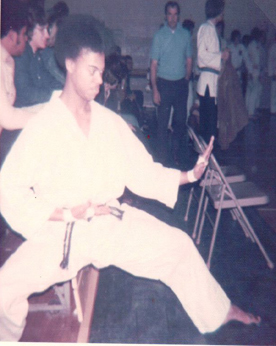
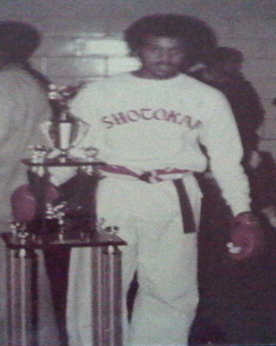
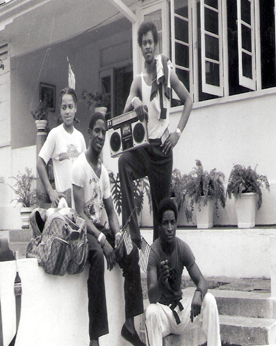
Martialforce.com: What was your first introduction to the Martial Arts and who was your instructor/s, how long have you been training in the Martial Arts?
PHIL MACRAE: My first time becoming aware of any martial art was with the TV series: the green hornet, starring Bruce Lee, and all I remember saying was: I had to learn this. Back to dates in 1967 there were lots of "Street Gangs". The streets of New York were not a safe place to be, so in the sixties my father realizing that we needed a safe haven, became the operator/ owner of a karate school "The Shotokan Karate Club".
Back in fifties, my father was a big singer his name is "Buddy Floyd Mcrae the group was called "The Chords". Their big song back then was called Shaboom. My brother Michael and I, at the age of 11 and 12 years, started studying and training in the martial arts. Our first teacher in the Shotokan Karate Club was REMY HANNIBAL. It was "The first Shotokan School in The Bronx". My next teacher was the great grand master Abdul Musawwir Haqq (aka Monroe Marrow, back then) he was the main teacher in the dojo. I trained under him for 2 years, and his instruction included Errol Bennett. We also had instructions from others like g. Gm Reno Morales, Tony Canty, who taught Goju Ryu, Ralph Rodriguez (Shotokan), and Mr. Carter. We had a lot of karate elite come though that school: happy crump (KA System), Fred Miller (Nippon Gojukai) used to come and train all the time; we all came up together but then Musawwir Haqq (Monroe) went his separate way to establish his own school, and I kept running the operations of the school for 13 years until its closure in 1973. From there I started teaching at other places. My last stop was the PAL center on Webster Ave, The Bronx.
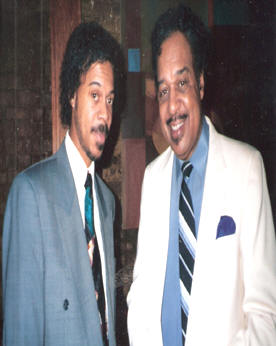
Phil Mcrae and Father
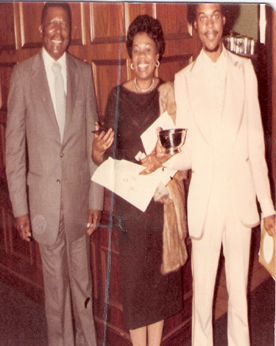
Martialforce.com: Can you tell our readers what a typical day of training was like back when you were competing in karate tournaments?
PHIL MACRAE: Well the training was very hard. A lot of excises, moving up down the floor. Matter of fact, I had went on to train by myself. Because everyone else I knew went on they own. There was a lot of hard excising that would last from 2 to 3 hours without much rest. During the early days, I trained everyday; it was like you eat drink and sleep karate. The training never stopped. You could wring the sweat off your gig that's how hard the work outs were. If you could not handle it then you better get out the class.



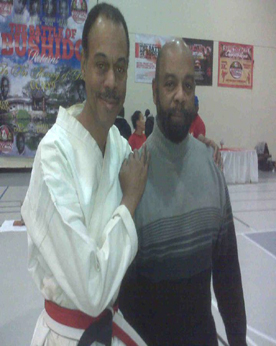
Martialforce.com: What was the Progression: Calisthenics, Kihon (Basics) Kata, and Kumite? How long were the Training Classes?
PHIL MACRAE: When coming up, you go though all levels in the ladder you learn various warm up exercises to prevent injury and get the body ready for the strenuous exercise to follow. You learn basics and train to perfect them, then Kata from the beginning until you can move to the next level, which gets even harder. There is Kumite which is a step by step process; you have to work on legs with a lot of kicking repetitions. And hands techniques also learn to put them in combinations and you keep going over and over all the time. You will start to improve as time goes by, but you must have the heart and will to learn the Arts.
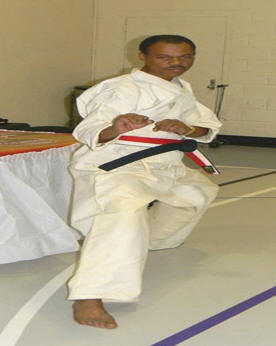
Martialforce.com: What was tournament competition like when you were first introduced?
PHIL MACRAE: I was not interested in tournaments until I met Steve Valencia. He was a greatly talented martial artist, who was training with us back then and who unfortunately passed away too early in life. He convinced me to compete in Joyce Santa Maria’s tournament. I enjoyed competing and the people that I met and learn from. After this first experience, I kept on going. I was winning kata and kumite in many tournaments, and the best part was meeting a lot of great people and learning. My name and reputation was growing bigger and bigger in the tournaments scene. The name started getting known and with that came respect for accomplishments. I also fought for two Olympic teams in the 1980's and did well in both. I also became a state champion in 1980 and was named "the athlete of the year" during the "world’s games". Mario Arthur, grand master, was in charge of team at the time and we had the opportunity to travel internationally for competitions. He took us to Trinidad where I won the championship 2 times. This was a nice place to be and a great experience.
Martialforce.com: Please give us some of the names of Martial Artists you competed against?
PHIL MACRAE: I fought so many great warriors, to name a few the great g. GM Errol Bennett, Little KA, the legendary William Oliver, great Earl Thomson, the cagy Mychal look up Sledge, "speed demon" Speedy Wilson, relentless warrior T. Taylor, ferocious Sam McGee, Bennett's protégé Billy beason, world famous Billy blanks, legend Joe curly, there was one warrior called "The Hulk" when I was on the us. Team. Chester Miller way back in the days when we first met in the Bronx river houses, that’s where I first met his brother the great Grand Master Fred Miller. We never fought in a tournament but always in training at the dojo and in inter dojo shiai. Now a lot of this goes way back, we are talking 1970/1988. Many more that we fought I could keep listing, but it will take up the page, lol.
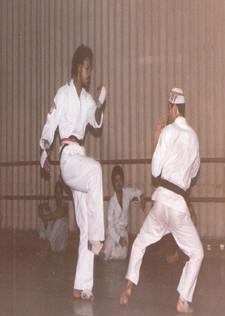
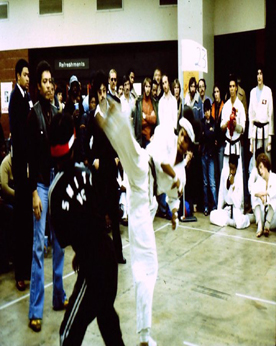

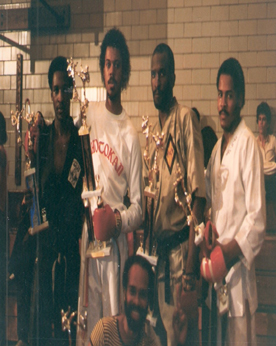
Martialforce.com: I witnessed just about all of these mentioned names in Kata and Kumite and Rank them as the creme of the Crop. How did you prepare and fought Errol Bennett, Mychal Sledge, T. Taylor, Chester Miller, Sam McGee?
PHIL MACRAE: I used to sit in a corner and not look at them. They were not easy opponent or easily intimidated, but you know what you have in front of you. Let me tell you: this is when one learns to really see the art for what it is worth. When I faced them, and when any competitor faces the opposition, the art comes to life, because all of us train very hard to get to that level and the principles, techniques, and philosophy comes together as one, welding your mind, body and spirit making you an invincible warrior. Believing that you have prepared and trained hard to be the best, and win or loose, loving what you do, is one of the results from the training in the martial arts!
Martialforce.com: Do you believe the practice of Kata is useful and if yes or no, why?
PHIL MACRAE: Kata is great, it improves your fighting skills make you aware what around you. It kept you sharp while you are training your mind, body and spirit and gaining in balance, speed, power, focus and fluidity. Training and working the Kata is how one becomes a good or great fighter, not the opposite, as in Kata there is Kumite.
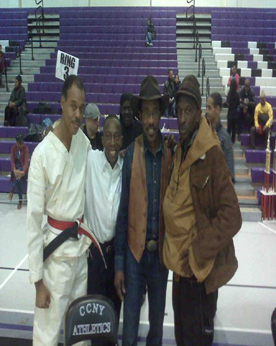
Martialforce.com: What is your favorite Kata and did you apply it to your fighting? How?
PHIL MACRAE: I don't have a special Kata I really love them all. In Shotokan you learn and master all Kata; but during competition you go by what you feel.
Martialforce.com: Do you feel that martial arts played an important role with who you are today?
PHIL MACRAE: Martial arts played a big role in my life. It makes you see life in other ways and experience moments like no other. You look at people differently, your senses become sharper, you can tell what your body is doing and what it needs. You have better feelings inside and understand yourself better; you can feel the connection with other people. When you meet someone you feel what they are feeling, sometimes it could keep going on and on.

Martialforce.com: How did martial arts help you grow and develop into the person you are now, and accomplish your goals?
PHIL MACRAE: Let me tell you something, when you are young you don’t take life seriously. But you grow you see things a lot clearer so you will know what your goals are, and this will secure your future.
Martialforce.com: What are your thoughts on cross training in regards to other styles of martial arts?
PHIL MACRAE: Cross training in other styles is fine, but you should keep your mother style. That is very important because with the foundation of your original style you and your karate become very strong.
Martialforce.com: Who do you feel was your biggest influence in karate or life in general and why?
PHIL MACRAE: My biggest influence in the martial arts, I have to say was Bruce lee and my father Floyd Mcrae.
Bruce Lee, because at that young age I had never seen karate and to see it was like a dream.
My father was another great, great influence who owned the Dojo- School where one trains in the martial arts, and always told me "there are no quitters in the family". Because the work out were very hard, at some points I wanted to quit, but kept on going to get where I am today. So my father helped me a lot with his relentless motivation to reach all my goals, along with the great teachers of the Shotokan karate club whose names were already mentioned.
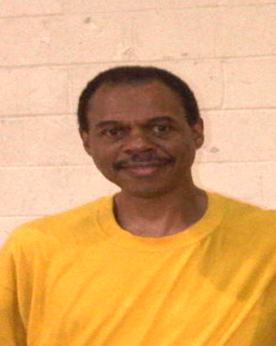
Martialforce.com: What would you say is your greatest achievement?
PHIL MACRAE: Well my achievements date back a long way, I won a lot big local tournaments, and as I said early represented the USA in international Olympic competitions. I also met and have influenced countless of people in the Martial Arts world. I have done my share of giving back to the Community by teaching and sharing my morals and experiences to help those who may be in need of guidance and advice. I can not express the deep feelings I have about meeting so many great people but it is great to see a lot of that love for the Arts. It will live on forever. I like to say thank you for this chance to give a little history and hope things improves for the better of the arts there are a lot of great peoples out there and thank you for the respect.
Martialforce.com: What are some of your achievements outside the Martial Arts that can be attributed to your dedication to karate training?
PHIL MACRAE: It changes our attitudes to see things in a different perspective. When you talk to people you can feel the words said so to relate to the atmosphere around and martial arts make you see that. So the training keeps you aware about things inside yourself and that other person. Realizing that the Martial arts are giving gifts; it is a gift that makes you look at life in a totally different way.
Martialforce.com: Do you have any long or short-term goals in martial arts?
PHIL MACRAE: Continue involvement in the Martial Arts and hopefully in the near future open another karate school to share experiences and training with young and old.
Martialforce.com: What would be your advice and guidance for a child, youngster, or adult who is interested in starting training in the martial arts?
PHIL MACRAE: I would encourage anyone who is interested in learning the martial arts, since it is such a powerful and solid foundation. I would tell them, "Make sure this is what you want to do. You must feel it in your heart. Don’t waste your teacher's time and your money'. The martial arts, as in life, "you get back, commensurate to what and how much you put into it".
Martialforce.com: What would you say to a child, youngster or adult who may be facing a hostile or physically abusive situation?
PHIL MACRAE: If anything, try to walk away from it to avoid it, is the safest way and it depends how bad is it. Try to think before you act, but be prepared to defend yourself.
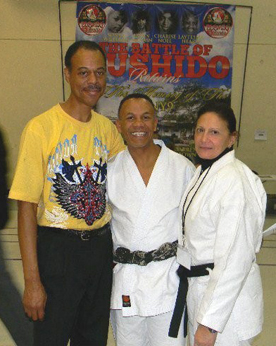
Martialforce.com: What if a youngster has been approached or influenced by friends to engage in an unlawful or violent act?
PHIL MACRAE: This is when it is important to start teaching at a young age about bad and good, that way they will know what goes on in life. Kids today need all the help they can get. Part of the guidance would be to avoid the negative company, and to make whatever excuse to stay away and not to be put in the situation of having to make a decision on the spot that may be the wrong one. Remember your parents' teaching.
Martialforce.com: I thank Eddie Morales, Hanshi, of Martialforce.com Magazine for this privilege, and I thank you, Grand Master Phil McRae, for providing me with this opportunity to feature one of the greatest martial artists I’ve met during my Martial Arts life, and most of all for all your direct and indirect teaching and guidance that most certainly made a difference in me.
Thank you for being a teacher and friend.
Franklin Puello